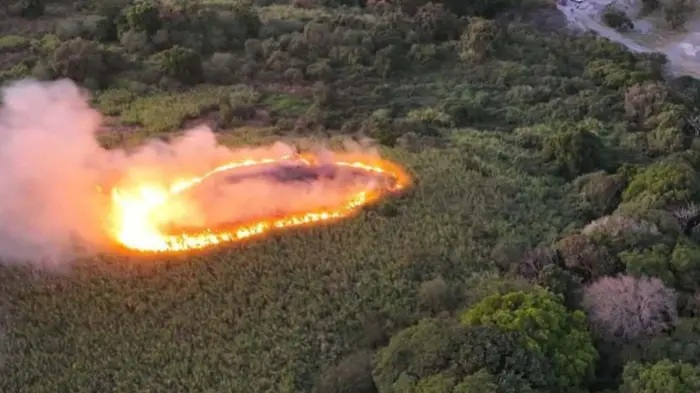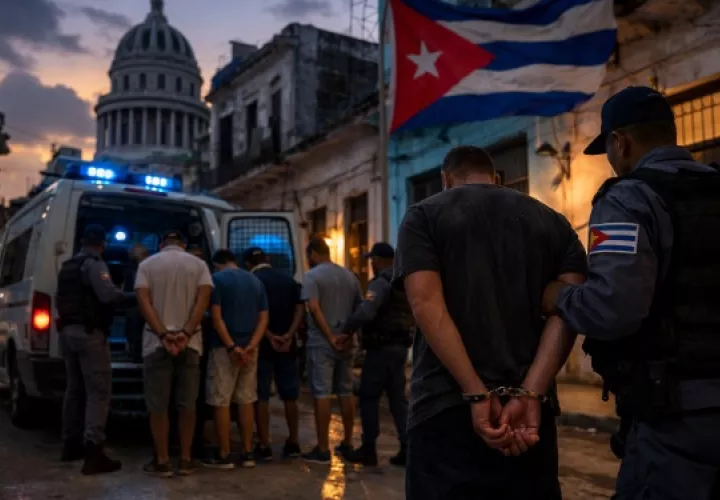Panama human trafficking magnet

PANAMA’S capital city has become “ a magnet” for criminal networks involved in human trafficking for sexual exploitation and labor which has fired a major crackdown by specialized judicial units.
The increased trafficking activity has been fueled by the availability of tourist facilities a thriving economy and the country’s location as a transit center special prosecutor against Organized crime, Rafael Baloyes told La Prensa.
These factors are used by criminal networks that lure victims and install their illegal activities here.
With the increase in prosecutions of the offense this year Public Ministry officials, in joint operations with the police have dismantled four criminal networks engaged in human trafficking, and have rescued 71 victims men and women, most of whom were sexually exploited.
In 2015, 50 victims were rescued.A year earlier, in 2014, authorities investigated 11 cases, four sex and seven labor trafficking.
Five people were sentenced for the crime in 2014 and three in 2013.
A 2015 US State Department of State report, Trafficking in Persons, says, “the Government of Panama does not fully comply with the minimum standards for eliminating trafficking; however, it is making significant efforts to do so. “
T his year, four international networks engaged in trafficking for sexual exploitation and human trafficking have been dismantled and and another 10 investigations into possible groups involved in the crimecountry are underway.
Prosecutor Baloyes, said that in three raids conducted last month in the P.H. Ever Island Bella Vista, andthe Splendor and Sophia in Carrasquilla three gangs with international connections dedicated to trafficking for sexual exploitation were dismantled and the perpetrators are behind bars awaiting trial.
In, in an operation conducted in Costa Tower in Costa del Este, authorities captured the ringleaders of a network dedicated to human trafficking, mainly migrant African and Asian nationals traveling to the United States.
Most sexually exploited victims who are between 20 and 35 years of age come from Colombia, Venezuela and El Salvador.
Baloyes said that the networks involved were well structured. According to preliminary investigations, sexually exploited victims are contacted by recruiters who promise them job opportunities,like domestic work and opportunities to study When they victims reach Panama, their passports are taken away and they are forced themprostitution.
SOCIAL NETWORKS
The prosecutor said that organizations place ads on social networks and in the media.
When the victim decides to travel, the recruiter prepares everything and the day of shipment gives money to reach their destination.
Upon arrival, they get a room and receive care and food for several days.
Later their passports are taken and they are told they must pay their passage money by prostituting themselves. They are promised a percentage of the profits.
Attorney general, Kenya Porcell said that the leaders of the criminal networks are foreigners who appeared to handle legitimate business, but they were unmasked through intelligence operations and community support , which gave indications of irregular activities.
Porcell revealed that research is underway on a possible further 10 networks dedicated to trafficking for sexual and labor exploitation.
She appealed to the cooperation of citizens, to provide information, as anonymous reporting is a key to discovering and punishing the criminals.
SEX TOURISM
Porcell warned that Panama will not tolerate sex tourism and stressed that the surveillance of these activities has been strengthened . The investigation of these crimes requires a highly skilled staff and advanced technology to establish linking the suspects to the crime, she said.
Prosecutor Baloyes said that the victims have received psychological care and have been provided with temporary shelter, where they receive food and humanitarian assistance.
They remain in the shelter until they decide if they wish to return to their home country or apply to remain in Panama.
A report prepared in 2015 by the US State Department said that the Panamanian protection efforts remained inadequate and most victims identified did not receive services.
The report notes that the Government did not allocate resources to assist trafficking victims .
The report recommends Panama significantly increase the money for specialized services to victims, including the implementation of a fund dedicated to victim assistance and provide resources to civil society organizations to offer services.
In addition, the State Department has asked the Panamanian government to intensify efforts of law enforcement in proactive investigation and prosecution of crimes, involving Panamanian victims and any public servant who is presumed to be complicit in such crimes.





